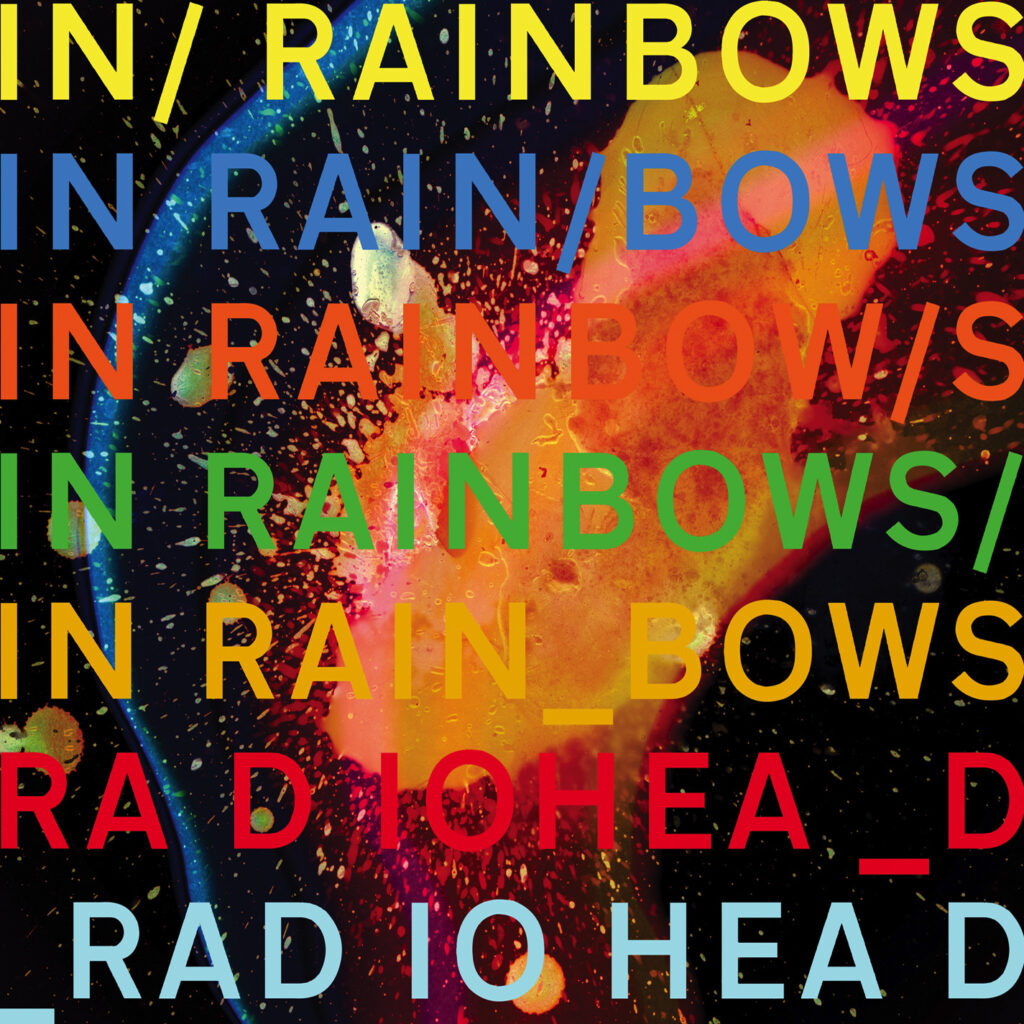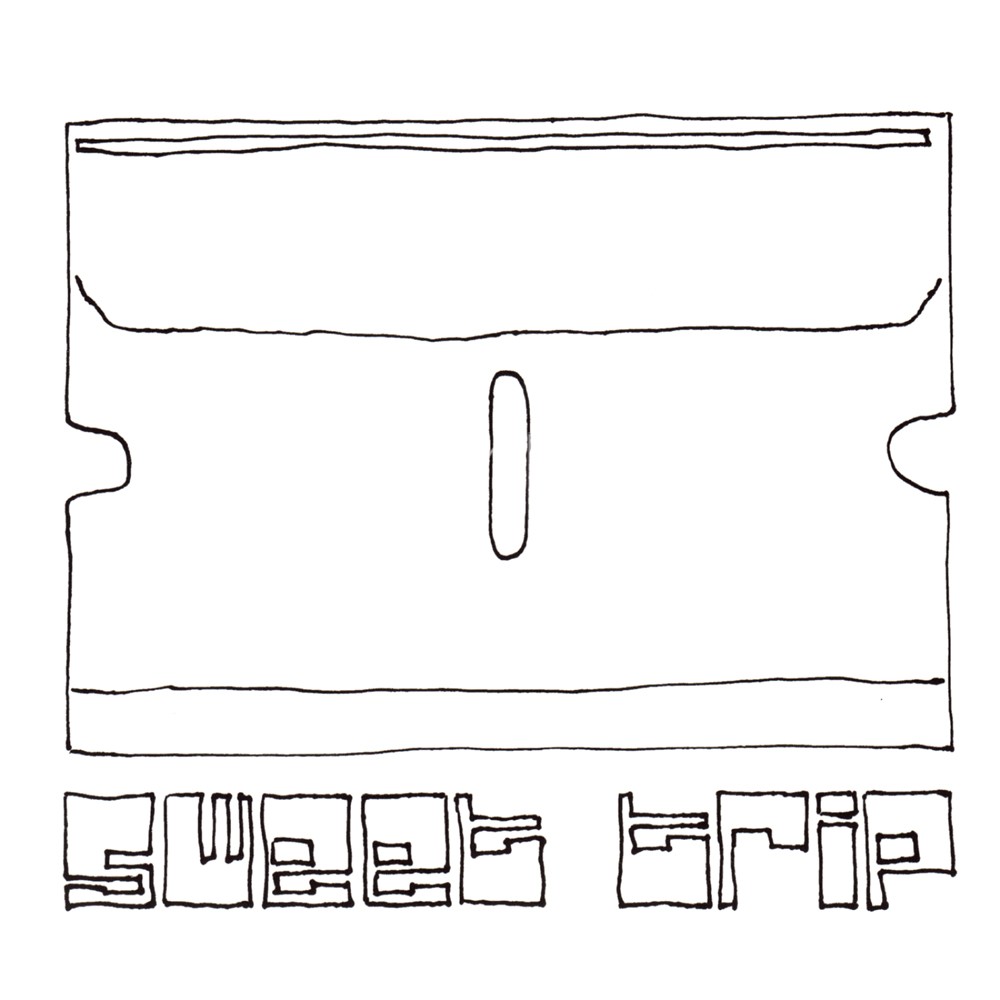Radiohead, ‘In Rainbows,’ 2007

I’m a moth who just wants to share your light
I’m just an insect, trying to get out of the night
I only stick with you because there are no others
You are all I need
You are all I need
I’m in the middle of your picture
Lying in the reeds
What was once revolutionary is now the pulse of the ordinary. In 2007, freed from the grip of EMI, Radiohead stood as the world’s most colossal unsigned band—unshackled, untethered, answering only to their own restless creativity. They didn’t just step into the void; they carved a new path entirely, releasing In Rainbows under their own defiant terms: pay what you will. The gamble was audacious. The triumph, inevitable.
Yet beyond the clamor of its release, In Rainbows is something purer—an album that doesn’t merely belong among the greats but defines them. It is Radiohead’s Revolver, their Dark Side of the Moon, their Highway 61 Revisited—a zenith in a career already dense with them. OK Computer, Kid A, Amnesiac—each shattered boundaries, warping the sonic possibilities of mainstream music. But In Rainbows is where chaos and grace entwine perfectly: Jonny Greenwood’s orchestral alchemy collides with Thom Yorke’s fever-dream vocals, tumbling between hip-hop cadence and spectral wails. Even now, it thrills like a revelation, yet comforts like an old friend.
15 Step jerks you awake—a carnival ride of syncopated beats, children’s chants slicing through the rhythm like a half-remembered dream. The handclaps, the collective “Yeah!”—it’s euphoric and unnerving, a jolt of electricity that demands your body move even as your mind reels. This is Radiohead at their most rhythmically hypnotic, their sophistication worn lightly, effortlessly. Then comes Bodysnatchers—a song that doesn’t just race but consumes, a relentless surge of lust and paranoia. Yorke’s voice frays at the edges, as if he’s hovering outside himself, caught between ecstasy and collapse. Nude arrives like a slow exhale, a ghost finally given form after years haunting Radiohead’s live sets. The Ondes Martenot swells like a sigh, Yorke’s falsetto floating above Colin Greenwood’s bassline—a lullaby for the sleepless. But melancholy deepens with Weird Fishes/Arpeggi, its spiraling guitars pulling you into the undertow. Yorke sings of drowning, of surrender—”I’ll hit the bottom, hit the bottom and escape”—and for a moment, the abyss feels like a release. With the circling bass that drives the whole track, Weird Fishes is essentially the experience of death from self-harm. The ocean of this track is essentially the turning point of someone who thinks that they have no reason to live (proven from the line why should I stay here?) with their only interest is a damn ocean. Then All I Need erupts in a crescendo so vast it threatens to swallow the album whole. The track depicts undeserved love, with the narrator expressing that they’re not able to get their beloved they devote to. And yet—astonishingly—this is only the ascent.
Faust Arp flickers like a Nick Drake sketch, delicate and transient. But it’s the album’s final act that truly shatters. “Reckoner” is not a song but an incantation—voice as instrument, rhythm as heartbeat, every element woven into something sacred. The percussion crackles like distant thunder; the guitar hums like a prayer. In contrast, House of Cards slinks in on a bassline thick with desire, a love song stripped of pretense. “Forget your house of cards,” Yorke murmurs, and for once, Radiohead lets lust speak plainly. Jigsaw Falling into Place is a nightclub as fever dream—animalistic, claustrophobic, bodies moving in the dark, voices slurring into the noise. And then, Videotape—the quietest devastation. A farewell whispered to the void, its piano notes falling like final breaths. It’s not catharsis; it’s surrender. The sadness lingers long after the last note fades, a mirror held to life’s cruel brevity.
As the real-life drums give way to a barely distinguishable electronic counterpart, Yorke trails off, his piano gently uncoils, and the song ends with a whimper. The whole thing is an extended metaphor, of course, and, this being Radiohead, it’s heavy-handed in its way, but it’s also a fitting close to such a human album. In Rainbows was never just about how it arrived—it was about how it felt. Imperfect, perhaps, but necessary. And the music? Timeless. Every string hums with intention, every beat pulses with precision. By 2007, Radiohead had nothing left to prove. And yet here they were—still restless, still reaching, still rewriting what an album could be.
Sweet Trip, ‘You Will Never Know Why,’ 2009

You Will Never Know Why is a breathtaking album—simultaneously infectious and otherworldly. At first glance, Sweet Trip seems to have shed the glitch-laden electronica that defined Velocity: Design: Comfort, but this is no mere sequel. Instead of revisiting chaos, they sculpt a dream-pop reverie, their musical brilliance flowing unrestrained. Some may call it less explosive than its predecessor, but the lush, introspective moments—Milk, Forever, the aching chorus of Acting—are vital, cradling the album’s radiant highs like whispered confessions between bursts of light. There’s a Björk-like intuition here, balancing fragility and euphoria with effortless grace.
The journey begins with Conservation of Two, followed by the luminous Air Supply—two tracks that ignite the record with harmonies as intricate as Dsco or Chocolate Matter. Yet within Air Supply’s delicate sighs lies the first hint of the album’s true heart: a tender, shimmering melancholy that lingers like twilight. Then comes Forever, a shoegaze-kissed reverie where synths and vocals spiral like unanswered questions. The lyrics paint love in limbo—”only forever will tell”—and the music mirrors that suspended ache, verses looping like thoughts stuck on repeat. What begins as a murmur swells into something transcendent, a crescendo that feels like waking from a dream you never wanted to leave.
Acting stands as the album’s crown jewel. Roby’s sharp, accusatory verses clash against Valerie’s sorrow-laden chorus—”acting on regrets”—a duality mirrored in the music’s ebb and flow. The jazz-tinged bassline slinks beneath like a shadow, while the chord progressions ache with the weight of irreversible mistakes. It’s a masterpiece of emotional whiplash, intimate as a diary entry yet vast as a storm. Milk distills the album’s quiet magic into pure, liquid longing. Valerie’s voice floats through the haze, turning mundane moments into something sacred. The song builds almost imperceptibly, a slow-motion wave cresting into catharsis—no wonder it’s often hailed as their finest work, even as it defies expectation. Darkness follows, a burst of neon-lit energy masking its lyrical desolation. The bridge’s distortion fractures the song open, revealing a hypnotic 7/8 groove that feels both alien and instinctive. Guitars surge forward with uncharacteristic boldness, proving Sweet Trip can command chaos as deftly as they do calm.
To the Moon initially feels deceptively simple—repeating riffs, layered harmonies—until its second half erupts into a feverish jam, guitars spiraling skyward. What first seems underwhelming transforms into revelation, the kind of track that demands you lose yourself in its ascent. Song About a Sea and Song About a Sun are fleeting interludes, twin fragments of atmosphere. The former flickers with urgency, the latter dissolves into ambient haze—proof that even without melody, Sweet Trip can ensnare you in their world. No Words to Be Found is a dreamscape of muted drums and aching guitars, vocals drifting like half-remembered words. It captures the paralysis of love unspoken, the space between two people widening into silence. The guitar work here is sublime, each note a pulse of unvoiced yearning.
Pretending is deceptively sunny, its brass-kissed bounce belying the refrain: “pretty soon you’re dead.” Yet there’s no cynicism here—only a bright, urgent reminder to seize joy while it lasts. Misfortunes Are Cruel resurrects glitches from V:D:C, wrapping them in twee-pop warmth. What begins as playful nostalgia deepens into something richer, guitars and synths intertwining in a finale that feels like sunlight breaking through clouds. The closing Your World Is Eternally Complete is a triumph—dream-pop distilled to its purest form. The bassline pulses like a heartbeat, vocals soaring as if weightless. By the time the chorus lifts off, it’s clear: Sweet Trip doesn’t just write songs; they craft entire universes. Female Lover drifts in like an afterthought, an electronic coda to an otherwise organic journey. It’s an odd farewell, but harmless—like the credits rolling on a film you’re not ready to leave.
This album is a genre-defying spell, weaving dream-pop’s haze with synthpop’s glow into something singular. It doesn’t replicate V:D:C—it transcends it. You Will Never Know Why isn’t just music; it’s alchemy.